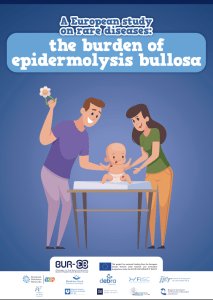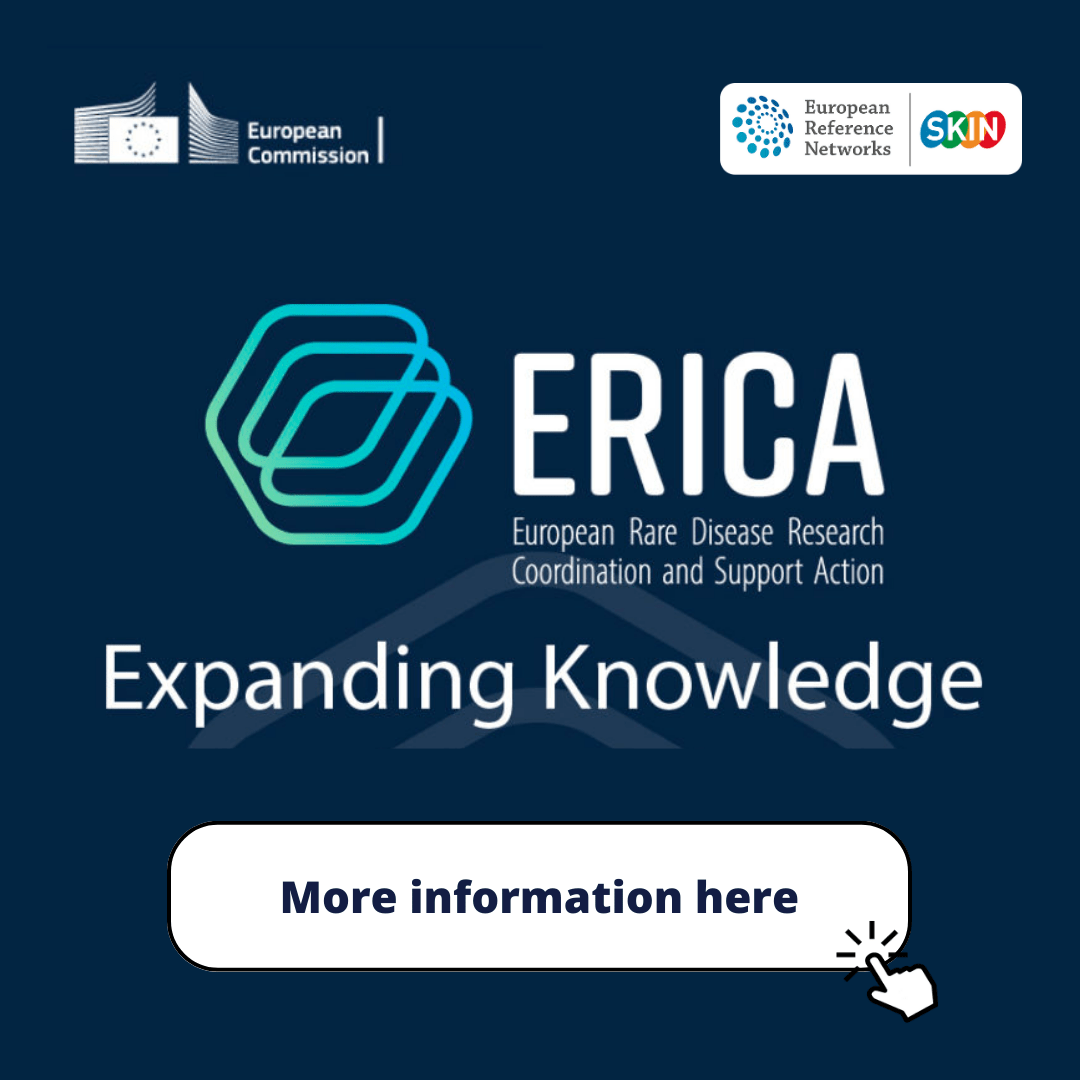…
We would like to inform you about an European research study: BUR-EB, conducted in seven European countries, to study -thanks to a questionnaire- the social and economic burden of Epidermolysis Bullosa disease on patients and their families & caregivers.
Data related to the impact of EB on every-day life is collected from affected persons and their caregivers via an anonymous survey in collaboration with clinicians and patient organizations (DEBRA). Based on the results, information materials will be developed to help patients and their families to cope better with the illness.
The study has been reviewed and approved by the Medication Research Ethics Committee of the Canary Islands University Hospital Complex (Coordinator of the project).
BUR-EB offers an opportunity to observe how the social and economic impact of EB has changed over the last decade and how these changes could be related to the health and social policies implemented during that period. This questionnaire will be an important tool to provide significant insights and recommendations guiding both European and national health policies.
You’re very welcome to participate!
You’ll find here the French version of the questionnaires as well as the associated notices explaining which kind of data you’ll be asked for, and a short resume explaining it.
-
For children: Click here to access the questionnaire and click here to read the notice
-
For adults: Click here to access the questionnaire and click here to read the notice
You’ll find very soon these questionnaires links in the 6 other participant languages (Spain, Italy, Germany, Hungary, Bulgaria, Austria) on the projet’s website: https://www.bur-eb.com/
Thanks a lot for your participation!
BUR-EB is a joint initiative of expert centers for public health economics and for rare skin diseases in particular EB in strict collaboration with the EB patients associations DEBRA International and the national DEBRAs.
The study is addressed to individuals with EB and their families and will be carried out in six European countries (Bulgaria, France, Germany, Hungary, Italy and Spain)
For more information click here
Invitation to professionals for the BUR-EB PROJECT
If you are professional and from any EU country you can Participate to the BUR-EB Project!
The WP5 from BUR-EB project is looking for clinical experts with direct experience in EB (medical doctors or nurses).
If you are willing to participate, please kindly provide your contact information and consent by filling out a short questionnaire: click here
More Information: This Bur-EB WP5 is seeking to build an international community of people with Epidermolysis Bullosa (EB), their care givers, and relevant healthcare professionals from 7 EU countries (France, Germany, Hungary, Italy, Spain, Austria and Bulgaria) to co-create Patient Journey Maps and self-care informational materials. Stakeholders of this community – and particularly EB patients – will be able to connect between them and to face the disease with the support and strength of a group that knows and lives with the same constraints and difficulties.
Bur-EB would like to discuss with you, as professionals, your experiences regarding EB patients’ disease management focusing on empowerment, shared decision making, and capacity building. Through this process, they aim to develop a Patient Journey Map for EB. Patient’s Journey Maps are graphical representations of trajectories of care that can be used to identify needs, create self-care informational materials, or redesign health services. Here and here you can consult examples of such maps.
Self-care informational materials will be also developed for the prioritised capacity building needs. You can find examples of self-care materials in our BUR-EB Library, here.
What will your participation mean? Bur-EB is inviting you as a healthcare professional with experience in EB to participate in this co-creation process. Participation will entail sharing your knowledge and clinical experience in a 60 minutes online group focal or interview that would help them define the clinical pathway of EB that will be carried out between May and July 2023 depending on your availability. During the meeting they will present you the project, discuss which is the best itinerary of care and propose to you further possibilities to engage in the co-creation process.
EJP – EUROPEAN JOINT PROGRAMME ON RARE DISEASES
This programme is composed of 130 institutions, including all 24 ERNs from 35 countries. It was launched in January 2019 for 5 years.
Main goal: To create a comprehensive, sustainable ecosystem allowing a virtuous circle between research, care and medical innovation on Rare Diseases, ensuring rapid translation of research results into clinical applications and uptake in healthcare for the benefit of patients.
EJP RD two major objectives:
- To improve the integration, the efficacy, the production and the social impact of research on RD through the development, demonstration and promotion of Europe/world-wide sharing of research and clinical data, materials, processes, knowledge and know-how
- To implement and further develop an efficient model of financial support (specific adapted calls) for all types of research on RD (fundamental, clinical, epidemiological, social, economic, health service) coupled with accelerated exploitation of research results for benefit of patients
ERICA – EUROPEAN RARE DISEASE RESEARCH COORDINATION AND SUPPORT ACTION
The aim of the ERICA consortium, in which all 24 European Reference Networks (ERNs) take part, is to build on the strength of the individual ERNs and create a platform that integrates all ERNs research and innovation capacity.
Through knowledge sharing, engagement with stakeholders in the rare disease domain and assembly of transdisciplinary research groups working across the global health spectrum, ERICA strives to reach the following goals:
- new intra- and inter-ERN rare disease competitive networks;
- effective data collection strategies;
- better patient involvement;
- enhanced quality and impact of clinical trials;
- Increased awareness of ERNs innovation potential.
ERICA will strengthen research and innovation capacity by the integration of ERN research activities, outreach to European research infrastructures to synergistically increase impact and innovation. This will result in efficient access and safe therapies for the benefit of patients suffering from rare diseases and complex conditions.
ERICA General Assembly – 6-7 July, Madrid, Spain
The ERICA 3rd General Assembly will take place on the 6th ans 7th of July in Madrid as a face-to-face meeting.
It will be hosted by Servicio Madrileno de Salud- Hospital Universitario La Paz (SERMAS-HULP). Coordination office of ERN-TransplantChild.
The aim of the General Assembly (GA) is to inform all the beneficiaries about the progress of the planned and completed ERICA project activities in more detail and to raise more awareness about the Rare Disease Research perspectives and cooperation within the ERN’s and other relevant partners.



